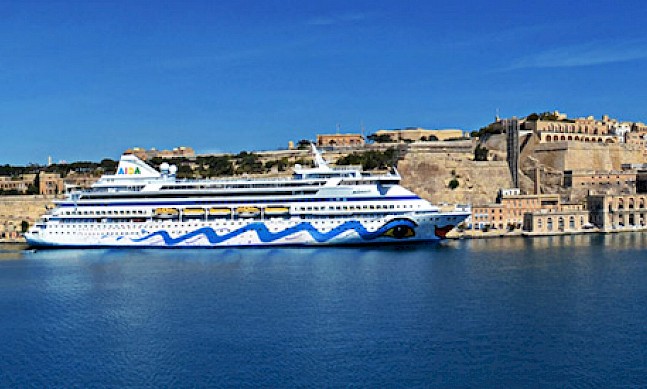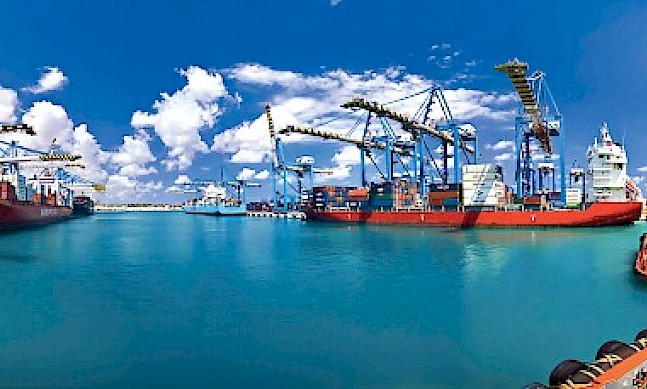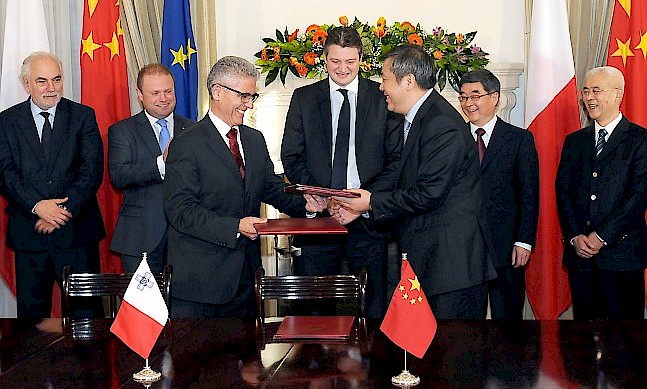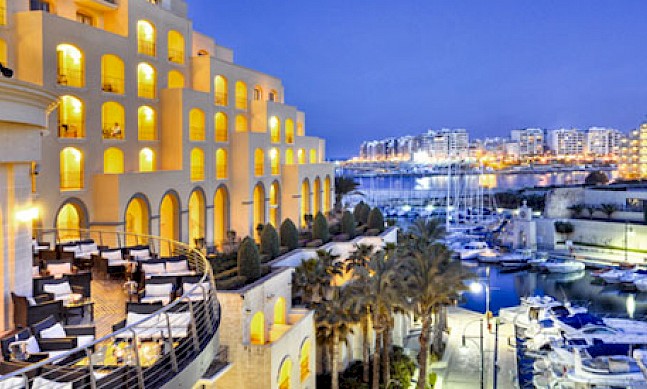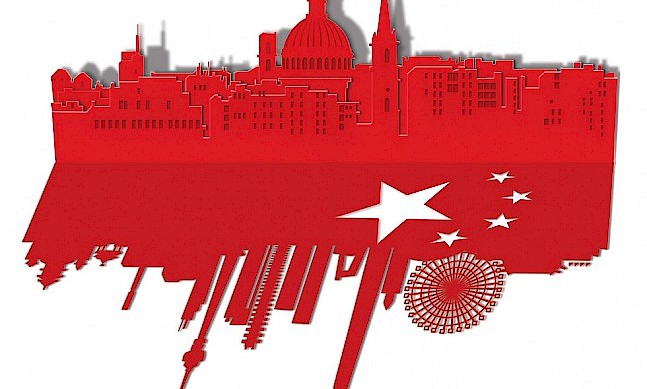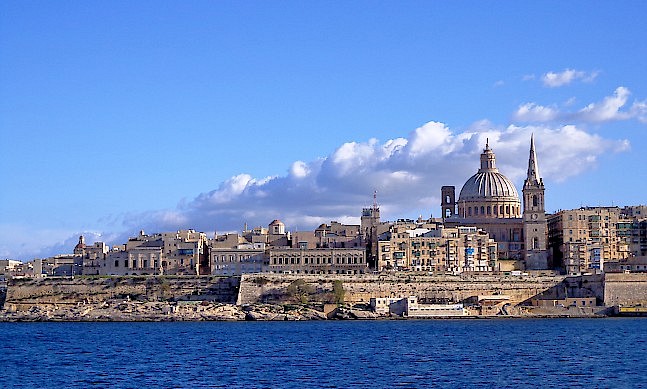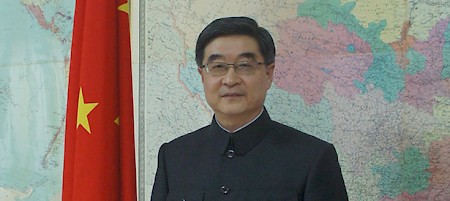
Since the establishment of diplomatic ties in 1972, Malta and China have managed to establish a rich, meaningful and active partnership. China’s ambassador to Malta, Cai Jinbiao, met with The Report Company to discuss China’s relations with Malta and the two countries’ current cooperation in various fields such as the investment and trade, energy, education and tourism.
The Report Company: Malta was one of the first European countries to establish diplomatic relations with the People’s Republic of China in early 1972, then also under a Labour government. How has the return of this party to government impacted the country’s relationship with China?
Cai Jinbao: China and Malta established diplomatic relations on 31st January 1972. Over the last 42 years our bilateral relations have covered a long distance and have become exemplary of how two countries of different sizes and social systems can develop friendship and cooperation together. It was under the Labour government that our two countries established relations. Developing closer ties with China has long been a national consensus of Malta. No matter which party is in government, whether the Labour or the Nationalist, China-Malta relations have always had an upward trajectory over the years. And I believe it will continue to be thus, since a stronger bilateral relationship serves the interests of both sides.
TRC: What are the priorities for your tenure as ambassador?
CJ: China is one of the largest countries in the world and Malta one of the smallest. We are far away from each other and faced with very different situations. Even so, I believe China and Malta have successfully nurtured a partnership and friendship which is growing from strength to strength. The key to this success is equality, mutual respect and mutual benefit. This is what China upholds to when developing relations with all countries in the world, big or small. As China’s ambassador to Malta, I wish to keep consolidating our excellent relations on the basis of such a belief, and push for closer cooperation and exchange in an all-round manner and in all fields, be it economic, political and cultural.
TRC: Where do you see the opportunities for China and Malta to deepen their economic ties?
CJ: There is a lot of potential for cooperation between China and Malta. China is now the second largest economy in the world and still maintaining a relatively high speed of growth. China’s economy grew 7.7 percent in 2013, the highest among major economies. It is estimated that in the next five years, China will invest US$500 billion in other countries, import over US$10 trillion of products and send 400 million tourists abroad. With its strategic location in the heart of the Mediterranean, coupled with its many other strengths as a regional business hub, I believe Malta has a big role to play in attracting Chinese investment, and will definitely benefit from closer economic links with China as one of the largest and most promising markets in the world. In this regard both governments are working together to identify those areas for possible cooperation and still we need to put in more efforts.
“China and Malta have successfully nurtured a partnership and friendship which is growing from strength to strength. The key to this success is equality, mutual respect and mutual benefit.”Tweet This
TRC: How would you appraise the future of relations between the two countries in the energy sector?
CJ: Malta’s economy is faced with a major restraint which is energy. Malta generates its electricity through heavy oil which is costly and inefficient. Last September during his visit to Dalian in China, Prime Minister Joseph Muscat announced an MOU on energy cooperation with the China Power Investment Group. China has advanced technologies and vast experience in electricity and can help Malta to solve this bottleneck problem. The two sides are still negotiating over the details of this MOU. I believe once signed this will be a major achievement of economic and investment cooperation which will benefit both countries and peoples.
TRC: What initiatives are underway in terms of trade and financial services?
CJ: Trade and financial services are an important sector of the China-Malta bilateral cooperation. We have had very good collaboration in this field. In 1993 the two countries signed the agreement on avoiding double taxation. In 2010 it was signed once again after being revised through joint consultation. The agreement has helped to facilitate the business cooperation between our respective business communities. The two governments have also had solid cooperation in financial services. In 2010 China Securities Regulatory Commission and China Banking Regulatory Commission respectively signed an MOU with the Malta Financial Services Authority, strengthening cooperation in banking and securities regulation. Malta has a sound financial system and enjoys a booming financial service industry. China would like to make good use of Malta’s strengths as a regional financial centre and further enhance cooperation in this aspect.
TRC: What opportunities exist for collaboration in education?
CJ: Last May, the two governments signed an agreement on the mutual recognition of higher education degrees. I believe with the signing of this agreement more Chinese students will be attracted to study in Malta. In fact I’ve already seen a notable increase in the number of students coming to study in Malta. As far as I know there are over 30 Chinese students studying at the University of Malta. Some others are studying at MCAST and ITS. The most common majors are international commerce, marketing, hotel management and tourism. There are also certain Chinese students coming to Malta for short-term language training courses at educational institutions such as EF. Malta’s edge as a destination for Chinese students lies in its English-speaking environment and its academic excellence. The number will definitely increase over the coming years. Both our countries value education and I believe we have a lot to do together in this field.
Besides this, we have had excellent cooperation between institutions of higher learning of the two countries. The University of Malta, for example, maintains a close relationship with the University of Xiamen in China. The two jointly established the Confucius Institute in Malta which is very active in spreading Chinese language and culture and has become an effective bridge linking the two cultures. Institutions such as MEDAC and IMLI also enjoy cooperation with their Chinese counterparts. They offer scholarships to Chinese students every year to study diplomacy and maritime law in which Malta excels.
“Malta has a big role to play in attracting Chinese investment, and will definitely benefit from closer economic links with China as one of the largest and most promising markets in the world.”Tweet This
TRC: What is being done to promote Malta as a destination for Chinese tourists?
CJ: Malta has been listed as a tourism destination for Chinese citizens by the Chinese Tourism Authority for more than a decade. Malta is known in China as the gem in the Mediterranean. Scenic spots such as the Blue Grotto, the Mdina City and the Hagar Qim Temple are all very well known in China. Many Chinese tourists are interested in visiting Malta and exploring its natural beauty and rich historical heritage. The number is always on the rise and very often I can find them on the streets of Valletta or Sliema.
I believe Malta can do more to explore the Chinese market. In fact in 2012 the number of Chinese tourists going abroad has already exceeded 100 million. It is estimated that by 2020 that number will be more than 200 million. This represents a huge market for the whole world as well as Malta. I believe more publicity is needed to promote Malta as a tourism destination. Malta may participate at various international tourism fairs in China. Local travel agencies may also strengthen cooperation with larger international agencies and present more attracting packages which include Malta and other European countries.
There are also more Maltese traveling to China either for sightseeing or business. This can be seen by the rising number of applicants at our visa office. I have met a lot of Maltese couples who told me that they were going to China for their honeymoon.
TRC: How can China’s and Malta’s cultural differences be overcome to foster business ties?
CJ: The cultural difference in terms of doing business is not really a problem. When China first opened up to the West in the 1970s, there was indeed a period of mutual accommodation due to the vast differences in ways of thinking, cultures and traditions. But as time went by, China has become increasingly interwoven with the rest of the world. Nowadays China has embraced many western business ideas and vice versa. I haven’t heard Maltese businessman complaining of difficulty in understanding business culture in China.
Speaking of culture in the broad sense, I must say China and Malta have a lot in common. They are both rich in history and culture, and deeply value their own cultural heritages. Cultural exchanges form an important part of our bilateral relations and have helped to enhance the friendship and mutual understanding between our peoples. We have a China Cultural Centre in Valletta, which was one of the first such centres to be set up in Europe. Last year it celebrated its 10th anniversary. It organises cultural exchange activities all around the year and has greatly helped Maltese people to better understand the Chinese culture. We also have a traditional Chinese medical centre which specialises in acupuncture and massage. It is a joint programme run by both governments and is very popular among the local people.
“Malta has been listed as a tourism destination for Chinese citizens by the Chinese Tourism Authority for more than a decade. Malta is known in China as the gem in the Mediterranean.”Tweet This
TRC: China is now planning the construction of a new embassy in Malta. What does this mean for the current and future relations between both nations?
CJ: The current embassy compound was built in the 1970s shortly after the two countries established diplomatic relations. It is becoming increasingly old and falling short of our demand for a modern embassy complex. At the moment we are trying to secure a piece of land in Pembroke on which to build a new embassy. The new compound will offer better working conditions for our embassy staff, and will also provide a better venue for more exchange activities between China and Malta.
TRC: To what extent can China use Malta as a springboard to other nearby economies?
CJ: Malta is strategically located in the heart of the Mediterranean and is a link to both the European and Northern African markets. China appreciates Malta’s unique location and would like to make full use of it. As an embassy we are trying to further promote such awareness in China so that more companies and businesses may come to Malta and make investments. Malta is a small market but is the gateway to the EU and many North African countries.
TRC: How would you like the relations between both nations to evolve over the next five years?
CJ: China and Malta have already set up a good example for the international community on how two countries of vastly different sizes, cultures and social systems may develop friendly relations. As the Chinese Ambassador I have full confidence in a stronger and better China-Malta relationship in the years ahead. We will continue to advance our cooperation and exchanges in various fields on the basis of equality, mutual respect and mutual benefit. What I would like to see is a more comprehensive and all-rounded development of our relations. We should put equal emphasis on the economic aspect as well as the cultural and people-to-people aspects. I hope to see a number of breakthrough economic cooperation projects and more bilateral trade and investment. I hope to see more robust cultural exchanges and a more active role played by the China Cultural Centre, Confucius Institute and our Traditional Chinese Medical Centre. I also hope to see more and more tourists travelling to and fro between our two countries.


